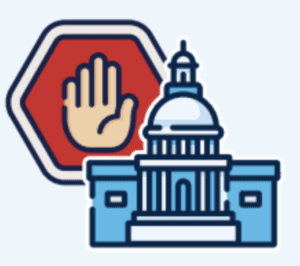One of many challenges facing our private sector businesses who are jumping through needless hoops and over unnecessary hurdles is the federal government’s onerous regulatory process.
With a Republican majority assuming control of Congress next month, one of their first actions should be to pass the REINS Act. According to the Foundation for Government Accountability, the Reins Act would be the most transformative policy change for taxpayers and job creators.

From the FGA:
“The REINS Act would broaden the CRA to require congressional approval of major rules, guidance, and other executive actions—those with an annual price tag of $100 million or more—before federal agencies could implement them.
“Congress is not only permitted—but also constitutionally required—to decide major questions of nationwide policy. The REINS Act would bolster that mandate by approving costly executive actions before they go into effect.
“Voters overwhelmingly support requiring bureaucratic agencies to gain congressional approval for new rules that will cost $100 million or more.”
Congress should learn from states that already implemented regulatory reform. In Minnesota, look no further than to our east.
“In Wisconsin, rules with $10 million in compliance costs over the course of two years can only take effect if lawmakers pass new legislation authorizing those regulations,” FGA reports. “The legislature’s Joint Committee for Review of Administrative Rules may also indefinitely object to a proposed regulation, blocking the rule until lawmakers pass new legislation authorizing it.”
The bottom line is simple: the REINS Act would make it more difficult to create even more costly rules, but easy to eliminate them.
With REINS, federal lawmakers can:
- Prevent agencies from using guidance to circumvent the congressional review process
- Protect taxpayers
- Tame inflation
- Increase transparency
- Rein in the executive branch